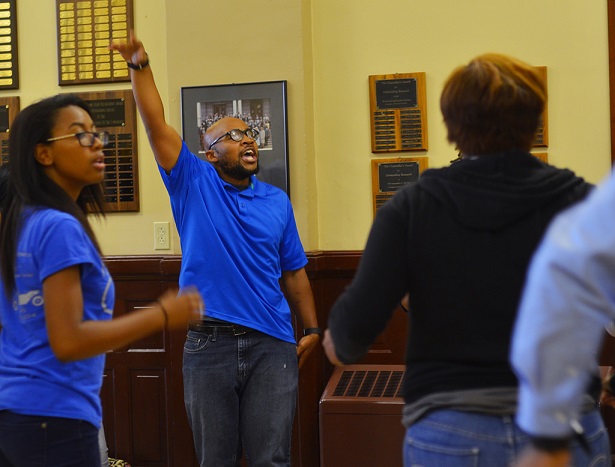Missouri president steps down amidst racial controversy
Tim Wolfe, president of the University of Missouri system, stepped down last Monday.
November 24, 2015
Former University of Missouri president Tim Wolfe resigned amidst controversy and protests concerning race relations on Nov. 9, 2015. The resignation surrounded many key events.
In September the student government president, Payton Head, was called a “n****” as he walked on campus.
Similarly, in October, a group of 11 students, part of the Legion of Black Collegians, were called “n*****” as well.
During Missouri’s homecoming parade, a group of black protesters, part of the organization Concerned Student 1950, blocked the parade to raise awareness of institutional racism on the campus. The protesters blocked Tim Wolfe’s car in an attempt to reach out to him about racism, but he never acknowledged the group. Allegedly, he hit one of the protesters with his car.
For many students, this was the last straw.
“After multiple attempts of trying to communicate with Wolfe, the students at Missouri concluded that if he wasn’t going to stand up for all students, he didn’t deserve to lead the school,” said Brittani Langland ’15, a West High alumni and student at Missouri.
Jonathan Butler, a graduate student at Missouri and member of the Concerned Student 1950, entered the scene.
“I felt unsafe since the moment I stepped on this campus,” he told CNN. “My first semester here, I had someone write the n-word on my wall. I’ve been, physically, in altercations with white gentlemen on campus.”
After he was allegedly hit by Wolfe’s car, he decided to go on a hunger strike until Wolfe was out of office.
“I will not consume any food or nutritional sustenance at the expense of my health until either Tim Wolfe is removed from office or my internal organs fail and my life is lost,” Butler wrote in a letter.
Throughout the first week and a half, Butler received much support around the campus. Even the football team contributed as well, declaring they would not participate in any football-related activities until Wolfe resigned.
“[The team has] never seen a person dying in front of them,” Missouri Athletic Director Mack Rhoades said. “We had discussion, and it wasn’t about any one person resigning. It was about what can we do to make sure that Jonathan Butler eats.”
This sparked not only local attention, but even national attention. The movement was now in full-blown motion, until, on Nov. 9, Tim Wolfe resigned.
This wasn’t the end to the narrative, however.
One day after Wolfe’s resignation, threats were posted on social media through the anonymous app Yik Yak.
One threatened, “I’m going to stand my ground tomorrow and shoot every black person I see,” while another claimed, “Some of you are alright. Don’t go to campus tomorrow.”
For students like Langland, these threats are exactly what the movement is trying to change.
“It does break my heart to know that there are some students on the campus who don’t understand why this change had to occur,” Langland said. “Too many times people try to promote their ideas by attacking other people, but that will only fuel hatred on both sides of the argument.”
In order to continue the change in a healthy manner, activists including Butler will continue non-violently protesting. Getting Wolfe to resign is only a step in the right direction, but more must be done in order to make liberation activists like Butler happy.
Despite the expected hateful response resulting from Wolfe’s forced resignation, Langland and many other people remain inspired by Butler’s courage and virtue.
“I can’t even describe how inspiring it is to see people from all different backgrounds come together to fight for what they believe in,” Langland said.


















